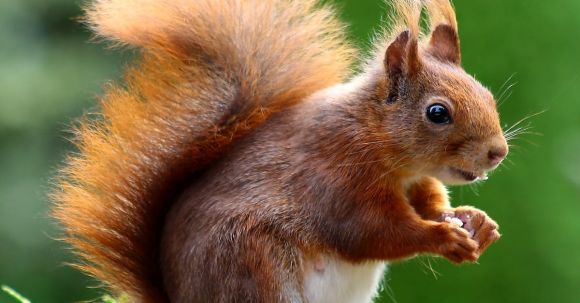Humans and wildlife have coexisted on this planet for thousands of years. However, in recent times, this delicate relationship has been strained due to various factors such as habitat destruction, pollution, and illegal hunting. It is crucial for us to recognize the importance of nurturing this relationship and taking proactive steps to ensure the conservation and protection of wildlife. By fostering a positive and sustainable relationship with wildlife, we can not only preserve biodiversity but also enjoy the many benefits that nature has to offer.
Understanding the Interconnectedness
One of the key aspects of nurturing the relationship between humans and wildlife is recognizing the interconnectedness of all living beings. Every species, no matter how big or small, plays a vital role in maintaining the delicate balance of ecosystems. For instance, bees, through their pollination activities, contribute to the reproduction of plants and the production of fruits and seeds. Similarly, predators help control the population of prey species, ensuring the overall health and stability of ecosystems. By understanding and appreciating these interconnections, we can better comprehend the significance of conserving wildlife.
Creating Protected Areas
Protected areas, such as national parks and wildlife reserves, play a crucial role in safeguarding wildlife and their habitats. These areas provide safe havens for animals and plants to thrive without human interference. By establishing and maintaining protected areas, we can ensure the long-term survival of numerous species and preserve critical habitats. Moreover, these areas also serve as educational and recreational spaces, allowing people to observe and appreciate wildlife in their natural environment. This, in turn, fosters a deeper connection and understanding between humans and wildlife.
Promoting Responsible Tourism
Tourism can have both positive and negative impacts on wildlife. When done responsibly, tourism can contribute to the conservation efforts and provide economic incentives for local communities. By promoting responsible tourism practices, such as respecting wildlife habitats, minimizing pollution, and supporting local conservation initiatives, we can ensure that the presence of tourists has a minimal impact on wildlife. This also provides an opportunity for people to witness the beauty and wonder of wildlife, instilling a sense of appreciation and concern for their well-being.
Mitigating Human-Wildlife Conflict
As human populations expand and encroach upon natural habitats, conflicts between humans and wildlife become more common. These conflicts often arise due to competition for resources or when wildlife poses a threat to human livelihoods. To nurture the relationship between humans and wildlife, it is crucial to find ways to mitigate these conflicts. This can involve implementing measures such as constructing wildlife-friendly fences, providing alternative food sources for animals, or developing early warning systems to prevent human-wildlife encounters. By finding sustainable solutions that benefit both humans and wildlife, we can minimize conflicts and promote coexistence.
Educating the Next Generation
To ensure the long-term conservation of wildlife, it is essential to educate and inspire the next generation. By integrating environmental education into school curriculums and organizing nature-based activities, we can foster a sense of wonder and curiosity about the natural world. Furthermore, teaching children about the importance of wildlife conservation and the impacts of human actions can instill a sense of responsibility and empathy towards the environment. By nurturing these values from a young age, we can create a future generation that is passionate about protecting and preserving wildlife.
In conclusion, nurturing the relationship between humans and wildlife is essential for the well-being of both. By understanding the interconnectedness of all living beings, creating protected areas, promoting responsible tourism, mitigating human-wildlife conflicts, and educating the next generation, we can foster a positive and sustainable relationship with wildlife. It is our collective responsibility to ensure that future generations can continue to witness the beauty and diversity of wildlife and appreciate the invaluable role they play in our planet’s ecosystems.



